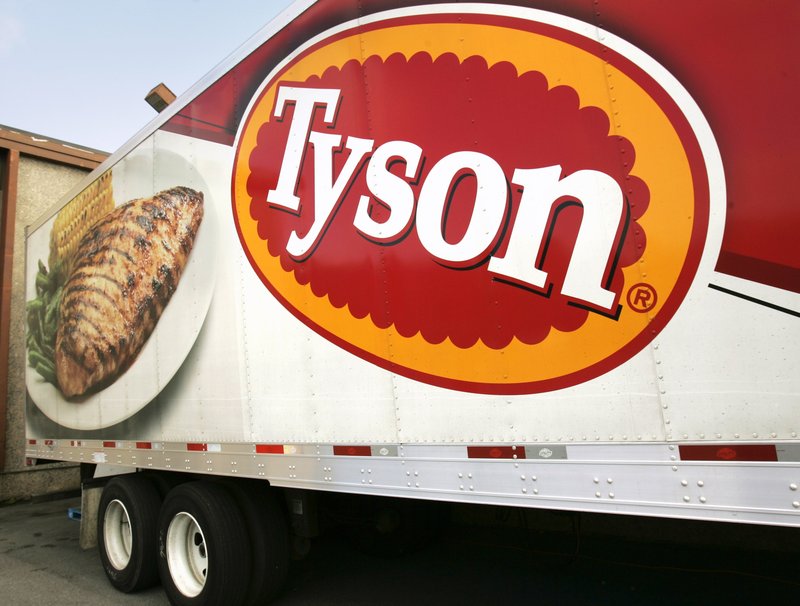Tyson Foods Inc. on Tuesday said it will expand overseas production in China, Thailand and the Netherlands to address robust growth in protein demand.
These latest efforts will add more than 100,000 tons of cooked poultry capacity to Tyson's operations, allowing the company to deliver an extra 220 million pounds of product into Asian and European markets. Plans show hundreds of jobs being created as a result of the new plants and factory expansions.
The expansion is part of Tyson's global growth strategy, which includes international acquisitions and investments in the production of plant-based foods.
"These investments allow us to increase our in-country operations and global export capabilities, helping us bring more safe, high quality protein for consumers in these countries as well as for customers in other parts of the world," President and Chief Executive Officer Dean Banks said in a statement.
The new processing plants in the works for Thailand and China are expected to yield more than 1,000 jobs and 700 jobs, respectively. More than 150 new jobs are tied to an expansion in the Netherlands.
Construction has already begun on the Thailand plant and is set to begin next year on the China and Netherlands projects, corporate spokesman Hli Yang said in an email.
Of the challenges the food industry faces -- including climate change and infectious diseases -- global population growth is the biggest. The United Nations last year estimated that 9.7 billion people will inhabit the planet by 2050, and food production must increase by at least 70% to keep up.
Growing meat consumption is the major driver behind that, expected to increase 1.7% each year and 16.7% over the next decade, according to the U.S. Department of Agriculture.
"Global population and income growth will continue to drive an increased need for protein," Banks said.
The Springdale-based company's international reach grew with the $2.16 billion acquisition of Keystone Foods two years ago, which gave Tyson access to operations along the Pacific Rim. It closed on a deal last year to buy six poultry plants from BRF S.A. in Europe and Thailand.
In fiscal 2019, Tyson generated $5.4 billion in international sales, most of which were U.S. exports.
To help generate consumer recognition overseas, the company has recently been rolling out Tyson-branded products for international food service and retail markets, such as Europe and Thailand. It also invested in e-commerce platforms in Malaysia and Australia to meet consumer demand, Tyson International President Chris Langholz said in a statement.
"The marketplace is changing, and we're changing with it," he said.
Tyson's meatless "Raised & Rooted" products recently became available to food service customers in Europe, the company said Monday. This was the plant-based brand's first expansion outside the United States.

